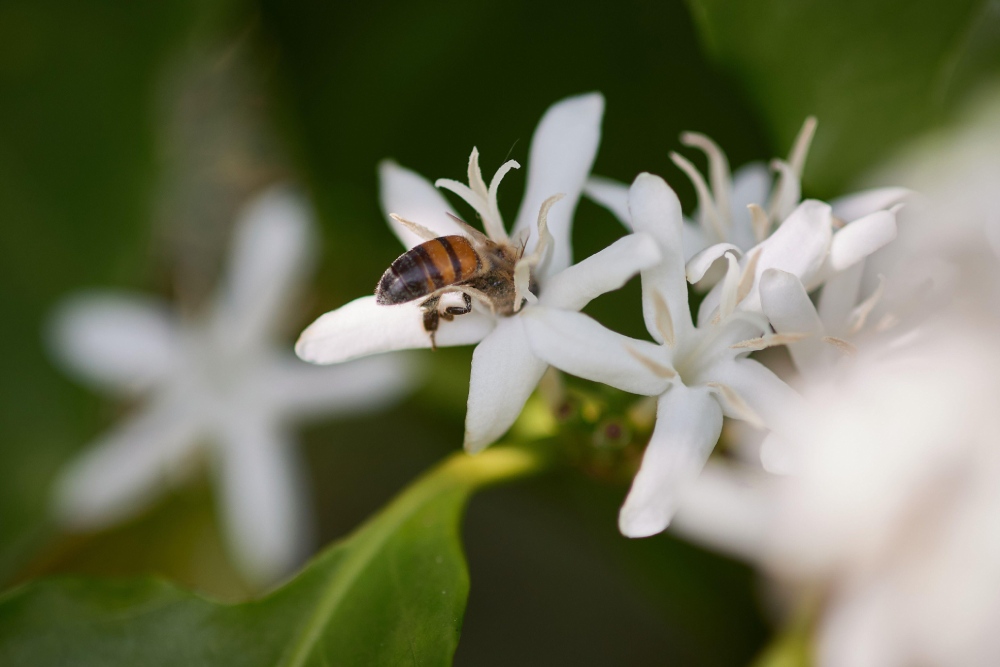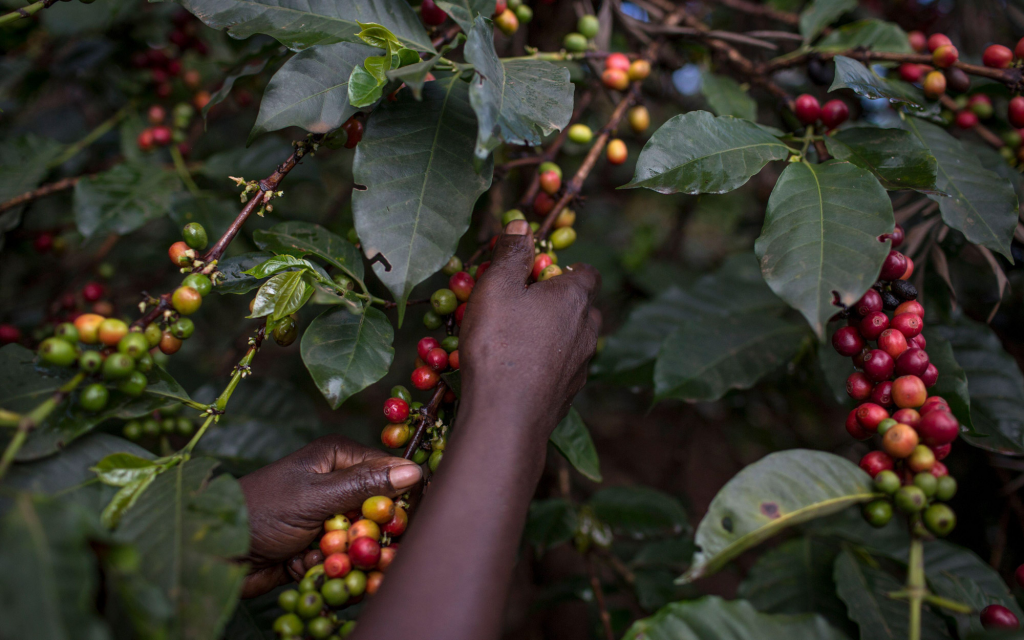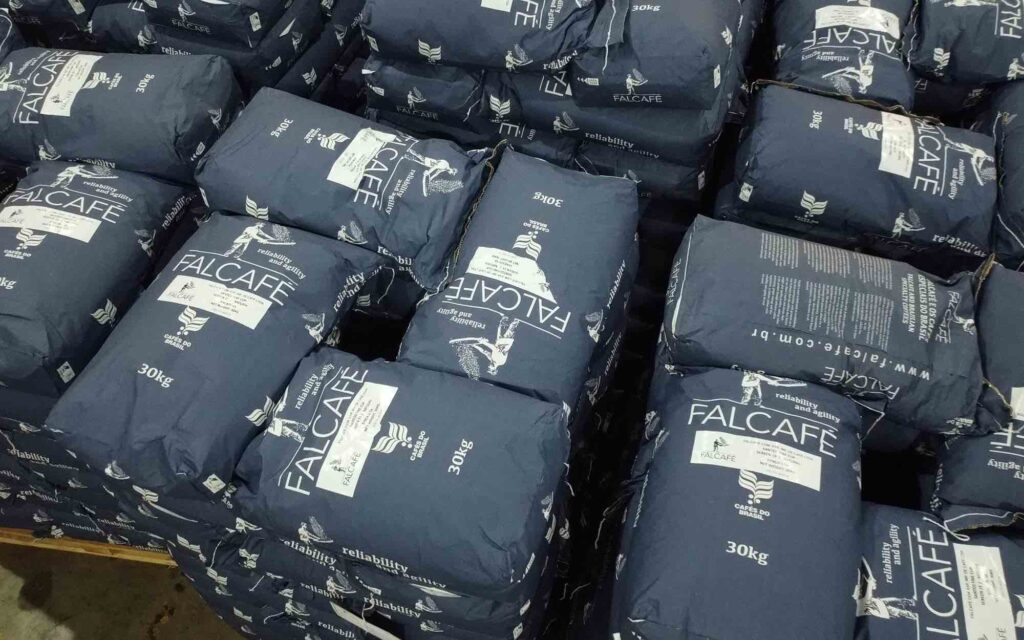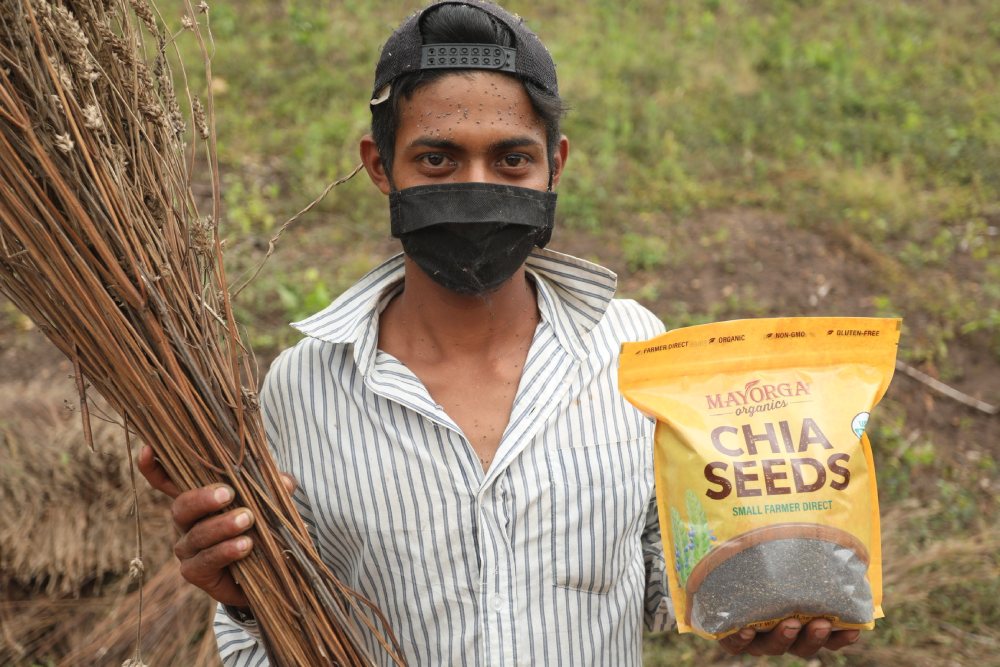Why succession and heritage are key to organic & regenerative coffee production

Sustainability is one of the most important and pertinent topics talked about in the coffee industry today – especially when it comes to trade and production. Carbon neutral, regenerative agriculture, and organic coffee farming are just a few examples of how producers are improving their farming practices.
What can often be overlooked, however, is that regenerative agriculture and organic farming date back thousands of years – rooted in indigenous and native coffee-growing and farming communities around the world. Guided by principles of working in harmony with nature, this in-depth knowledge of sustainable coffee production has been passed down to successive generations.
Preserving and maintaining these time-honoured traditions and farming practices is the collective responsibility of many coffee-growing families today, and continues to play a pivotal role in shaping the future of sustainable coffee production. At the same time, however, it’s also important to differentiate between these key sustainability terms so we can understand them better – especially organic and regenerative farming.
To learn more, I spoke to Victoria Nacif Dutra, customer service manager at Fazendas Dutra, and Cobi Cruz, CEO at Organis.
You may also like our guide to buying organic coffee.
What is organic farming and how is it different from regenerative agriculture?
Like many other sustainable terms, there is no official definition of “regenerative agriculture”. Many industry professionals and experts, however, point to the Rodale Institute’s definition, which was first used in the 1980s to describe more holistic aspects of organic farming.
But it’s crucial to distinguish the key differences between regenerative agriculture and organic coffee farming. For example, while producers can use synthetic pesticides and fertilisers in regenerative agriculture practices, they are strictly prohibited in organic farming – which means the production costs are often higher for the latter.
Cobi Cruz is the CEO of Organis – a non-profit organisation which encourages and supports the implementation of organic farming practices in Brazil.
“A small number of coffee producers practise organic farming,” he says. “This means they have to abide by strict standards.”
To be truly considered organic, producers must apply for accreditation. Organic certifications then prove to supply chain stakeholders that farmers are in compliance with stringent sustainable farming practices. Some of these include:
Using no chemical fertilisers or synthetic pesticides
Restoring soil health
Protecting local environments and wildlife
Promoting biodiversity
Conserving water
Essentially, organic farming practices which work in harmony with the environment and local wildlife – and can potentially help to reverse the impact of climate change. And given that rising global temperatures are likely to lead to “ongoing systemic shocks” to coffee production, mitigating the effects of climate change has never been so important.
Regenerative agriculture
Fazendas Dutra is a family-run specialty coffee farm in Brazil. Established in 1950, the farm is certified USDA Organic, Canada Organic, EU Organic, Korea Organic, Japanese Agricultural Standards (JAS), and Brazil Organic, as well as Rainforest Alliance-certified.
Victoria Nacif Dutra is the customer service manager at Fazendas Dutra. She points out that although not all producers can obtain organic certifications, there are many other ways to implement regenerative farming practices.
“When organic farming is not feasible due to specific conditions, we believe a valid alternative is for producers to turn to regenerative practices,” she says. “Learning from previous generations of farmers provides valuable insight into sustainable coffee production and forms a foundation to understand the complexities of different agricultural environments.”
Additionally, a more diverse range of certifications are becoming available, such as Regenerative Organic Certification (ROC). As well as adhering to organic practices, this certification requires producers to also abide by regenerative farming practices.
Moreover, the Rodale Institute’s definition of Regenerative Organic Agriculture requires “no chemical fertilisers or synthetic pesticides to be used, and ‘soil-less’ cultivation methods are prohibited”.
Leveraging generational and indigenous knowledge in coffee production
Along the Bean Belt, many coffee-growing families are second, third, or fourth-generation farmers. This allows them to accumulate in-depth knowledge of coffee production passed down from generation to generation.
Victoria says this also helps younger producers to understand more about how to grow coffee in harmony with nature.
“This philosophy extends beyond coffee cultivation – also incorporating a connection with the environment and understanding ecosystems,” she tells me.
Generational knowledge also stems indigenous communities in many coffee-growing regions of the world. According to the United Nations Food and Agriculture Organisation, “indigenous peoples have been the stewards of the land for thousands of years, practising sustainable agriculture that has sustained their communities and the environment”.
The importance of indigenous knowledge
Indigenous agricultural knowledge (or IAK) has long been a cornerstone of sustainable food supply chains, with many coffee producers implementing indigenous farming techniques like intercropping, terracing, and agroforestry to reduce the environmental impact of their coffee production.
In the context of Brazil, for example, the indigenous Paiter Suruí people use their in-depth agroforestry knowledge to produce shade-grown coffee under the Amazon forest canopy, and also intercrop coffee plants with Brazil nuts, cacao, and cassava.
Victoria explains some of the ways in which Fazendas Dutra – a farm founded by José Dutra Sobrinho in the 1950s and now operated by his wife and children – leverages generational and indigenous knowledge.
“As a result of what we learnt from our ancestors, we still grow native plants to preserve local biodiversity,” says Victoria – adding that the farm grows coffee in contour lines to prevent soil erosion and water runoff, and also intercrops coffee plants with avocado and African mahogany to encourage more biodiversity.
“The practices passed down from generation to generation involve caring for coffee plants and working in harmony with local ecosystems, such as knowing when is best to fertilise plants and harvest cherries,” she adds.
The important role younger generations play in coffee farming
When talking about succession and heritage in coffee production, the discussion about the age gap often comes up. It’s estimated less than 5% of the world’s coffee producers are under the age of 35 – and considering that coffee farming is very labour-intensive, this undoubtedly threatens the future of the coffee industry.
This ultimately makes it even more crucial to encourage younger generations to become involved in coffee production. Moreover, the longer a family spends working in coffee farming, the more in-depth knowledge they can build to pass down to younger people, and potentially improve coffee quality and yields.
Victoria emphasises how important younger producers at Fazendas Dutra are to preserve the farm’s enduring regenerative practices.
“By passing on these values and farming practices, my generation and the next can become more responsible for balancing tradition with modernity,” she says. “Knowledge sharing across generations not only strengthens family ties, but also represents a commitment to sustainability and environmental preservation.”
Moreover, Cobi explains how this generational transition in coffee production helps to push for further innovation regarding sustainable farming practices.
“Younger people in coffee production have the task of separating useful knowledge from outdated techniques, and introducing new concepts to coffee farming,” he says.
Women’s indispensable role in regenerative coffee production
Similar to younger generations, women are absolutely essential to securing a stable future for coffee production. The International Coffee Organisation estimates that women operate between 20% and 30% of the world’s coffee farms – and that in some origin countries, women carry out up to 90% of the physical work in coffee production.
“Historically, working in agriculture was predominantly believed to be a masculine job role,” Victoria says. “Over time, however, the role of women in agriculture has progressed significantly.”
While women were traditionally excluded from many decision-making and leadership roles, over the past few years, there has been a gradual shift towards improving gender equity in coffee production.
For example, Osvaldina Alves Dutra (who is a producer at Fazendas Dutra) is a member of the International Women’s Coffee Alliance and a 2020 Cup of Excellence Brazil winner – showcasing the growing influence and success of women in the coffee industry.
“Increasing the diversity of voices strengthens the agricultural community and promotes a more inclusive, caring, and sustainable future for coffee production,” Victoria tells me.
Using succession and heritage to improve coffee quality and yields
Many of today’s well-established coffee farms have evolved through utilising their generational knowledge and expertise. And this not only applies to carrying out more regenerative farming practices, but also to improving coffee quality and yields.
For instance, optimising soil health can help increase coffee quality – and potentially even improve cup scores.
The same goes for increasing coffee yields. Fazendas Dutra, for example, started in the 1950s when José Dutra Sobrinho began growing coffee across 1 hectare of land. After sadly passing away in 1999, José left his wife and children with over 300 hectares – meaning the family has accumulated over 35 years of experience in coffee production.
“The knowledge shared across generations has provided us with a solid foundation to integrate more modern technologies in a way that can still protect nature,” Victoria says. “We believe that the balance of tradition and modernity helps to sustain the production of more sustainable and higher-quality coffee.”
Generational and indigenous knowledge are essential parts of regenerative coffee farming. Without them, coffee producers wouldn’t be able to implement many of the sustainable practices which are becoming increasingly important.
Looking ahead, encouraging younger people to become involved in coffee production – and to leverage the expertise and insight of generations before them – is one of the ways in which we can secure a more resilient future for the global coffee industry.
Enjoyed this? Then read our article on whether coffee production in the Amazon can be sustainable.
Photo credits: Fazendas Dutra
Perfect Daily Grind
Please note: Fazendas Dutra is a sponsor of Perfect Daily Grind.
Want to read more articles like this? Sign up for our newsletter!
The post Why succession and heritage are key to organic & regenerative coffee production appeared first on Perfect Daily Grind.





Responses